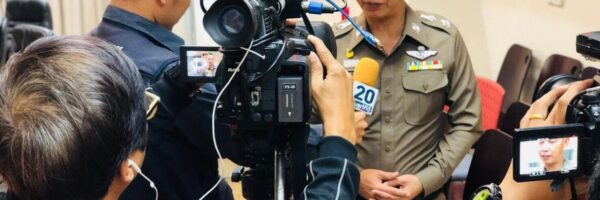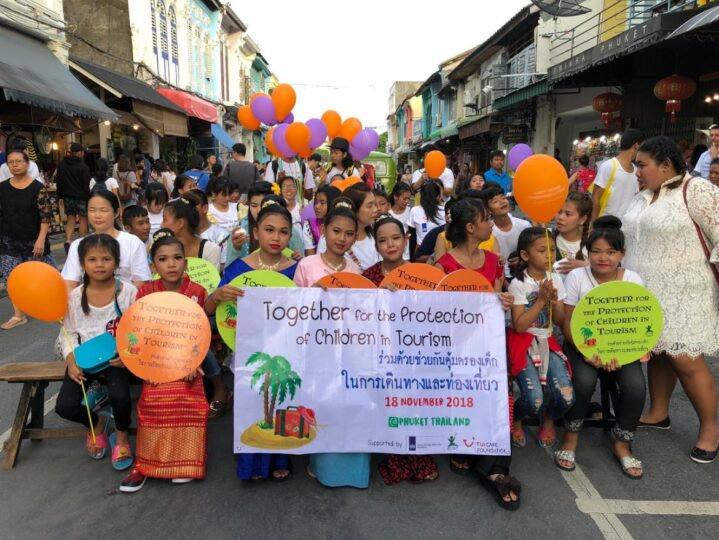
ECPAT Foundation: Ending the sexual exploitation of children in Thailand
When people think of Thailand, many things come to mind. Thailand is famous for its spectacular beaches, bustling night markets, scrumptious street food, vibrant holidays and festivals, and more. From the elephants, to the hills, to the rivers, waterfalls, shrines and temples, Thailand is well-known for many things. Unfortunately, it also has the well-deserved reputation as being rife with opportunities to pay for sex. And often, this “sex industry” directly places children in harm’s way. While exact figures are hard to come by, it is estimated that hundreds of thousands of children in Thailand are sexually exploited through prostitution (by tourists, travellers, and local Thais alike), are sought after online for sexual purposes, are forced into early marriage, or are trafficked as a part of the sex trade. Thailand’s position as a hub in SE Asia exacerbates this problem.
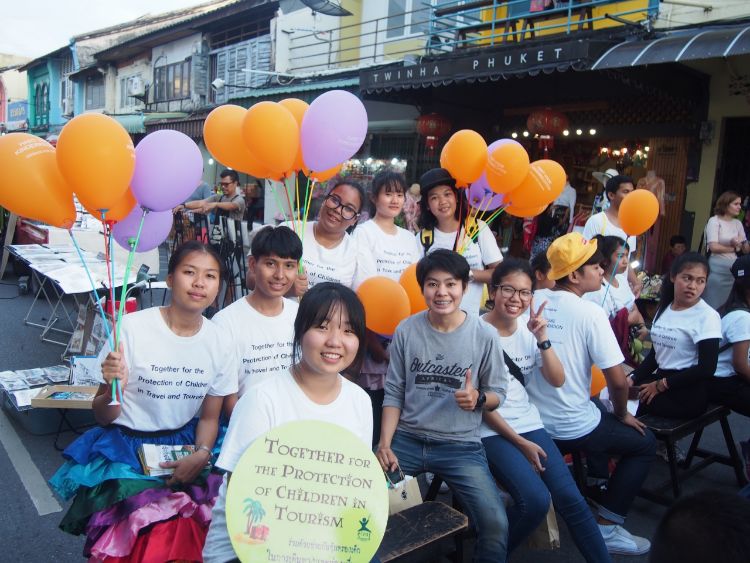
For example, in 2018, Thai police and armed soldiers raided the “Victoria Secret” massage parlour in the Rama IX area of Bangkok. Inside, they found 113 victims, many under the age of 18, being sexually exploited through prostitution. Just four of the victims were Thai; the rest had been trafficked from China, Laos, Malaysia and Myanmar. All were frightened, alone, separated from their families and in desperate need of legal and emotional support. For many children in Thailand, this situation is a frightening everyday reality. ECPAT Foundation stands up to protect these children – to safeguard children from ever being exploited in such a way. Since our founding in 1998, we have worked tirelessly to eliminate all forms of child sexual exploitation. “If children have the right to live their lives free from sexual exploitation, then we have a responsibility to honour and protect that right,” says Ketsanee Chantrakul, the programme director of our Foundation. “We all share in this responsibility.
Business leaders, tour operators, hotel staff, NGO staff, taxi drivers, policy makers, law makers, law enforcement officers, government officials, childcare providers, social workers, lawyers, educators, the clergy, religious leaders, community leaders, family members, and even children themselves have a role to play.” Though children, unfortunately, are at risk the world over, Thailand has consistently been ranked between the Tier 2 Watch List and Tier 3, the lowest tier, on the US Trafficking in Persons Report published by the US State Department. According to the report, throughout the Kingdom, “Children from (within) Thailand, Burma, Laos, and Cambodia are victims of sex trafficking in brothels, massage parlours, bars, karaoke lounges, hotels and private residences.” Nevertheless, Thailand has also made significant gains, particularly over this past year. In 2018, Thailand was removed from the Report’s Watch List for the first time in over seven years. Truth be told, sometimes this requires tackling corruption: “Corruption continues to undermine anti-trafficking efforts.
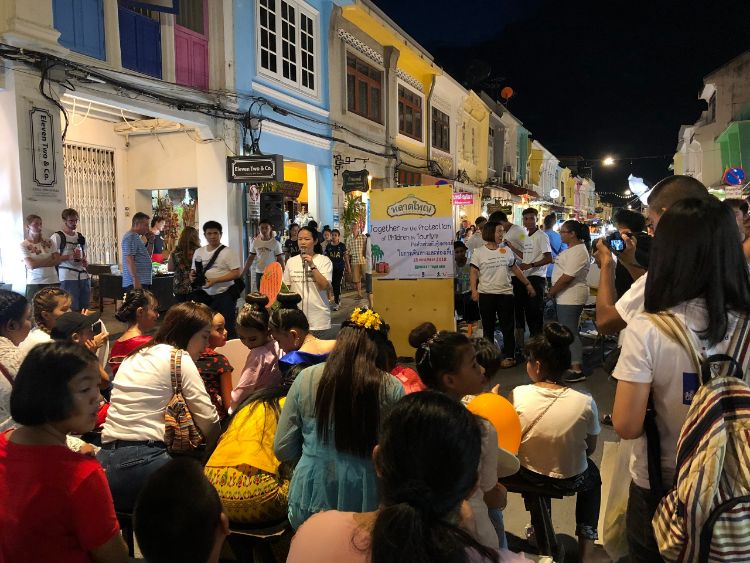
Some government officials are directly complicit in trafficking crimes, including through accepting bribes or loans from business owners or brothels where victims are exploited. Credible reports indicate some corrupt officials protect brothels and other commercial sex venues from raids and inspections and collude with traffickers.” (US Trafficking in Persons Report, 2018) Other times, this requires that ECPAT Foundation battle myths and misconceptions. For example, poorly trained police officers who don’t understand that children cannot legally consent to a sexual relationship with an adult, sometimes arrest child victims of sexual exploitation for “prostitution.” Not only does this further traumatise them, but it engenders a mistrust of the criminal justice system, says Chantrakul. “The work of child rights advocates and good law enforcement officials is beginning to upend this myth, ultimately revolutionising how we approach child victims. Children cannot engage in sex ‘work’ because they cannot consent, so rescue efforts must always avoid revictimising the child.” Ultimately, we are fine-tuning our programming to meet these needs.
Training law enforcement personnel is just one facet of the work ECPAT Foundation does to prevent sexual exploitation and protect children in Thailand. The Foundation also works to: develop child protection policies that have been adopted by other NGOs across the country, including at shelters, schools and businesses; train and equip school teachers, community leaders, and community watchdog groups to identify high risk children (often these are stateless, or migrant children, or those from unstable backgrounds); and coordinate multi-disciplinary teams of social workers, police officers, childcare providers, and physicians to intervene when a child needs help.
Because of our trainings and reputation, just this past year we helped rescue a 16 year old girl when she was sexually exploited by a neighbouring relative. In another instance, our efforts at training community leaders in a Lahu ethnic minority village paid off when we were informed that a girl was being pressured by her parents to marry a man who was offering gifts and payments to the family. He was 45. She was 13. In another case, likewise, we initiated a police investigation into reports of a 15 year old girl who was filmed having sex with her 19 year old boyfriend.
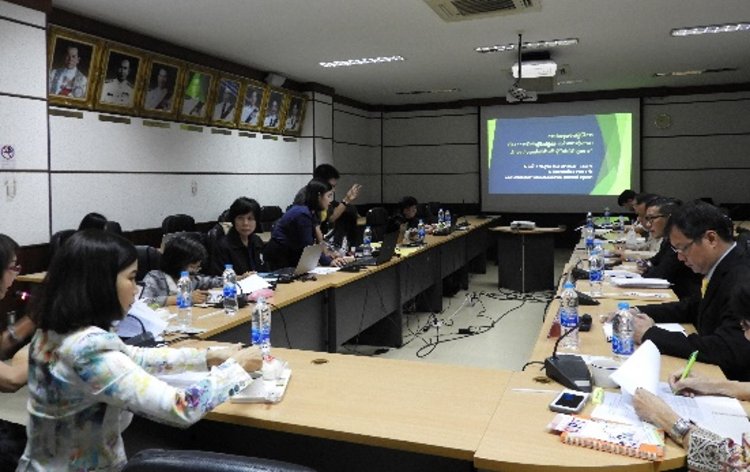
Traditionally, because of its location, ECPAT Foundation has focused on the region of the North. For years, we’ve implemented programming in partnership with Akha, Karen, and other ethnic minority village communities in the northern regions of Chiang Rai, Chiang Mai and Phayao. We’ve also worked with migrants who come across the northern border from Laos and Myanmar. But our efforts to train children as advocates have recently taken off throughout other regions. We pride ourselves are placing children in the driver’s seat as their own best advocates – and we’re proud to report this model has begun spreading across the country. Chantrakul says it is the children that ECPAT Foundation has trained that she is most proud of.
“The child leaders that we entrusted as peer supporters have made lasting impacts in their respective villages, communities, and school districts,” she says. “They are youth who are adept at watching out for their peers, warning them that sending out particular photo messages might have unintended consequences; they press their rural communities to establish watchdog groups that explicitly look out for child safety; and they execute their own awareness raising campaigns in the form of radio programmes, video clubs, cultural presentations and dances, and street theatre performances.” So now that our programming is spreading, in places like Phuket, the young people we have trained have started organising their own awareness campaigns, parades and public meetings at markets and other venues where locals and tourists go.
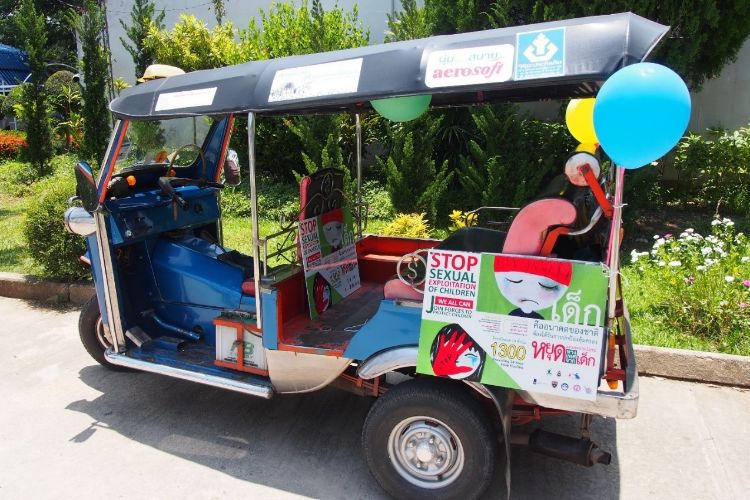
In one event, they reached more than 3,000 people. And just last winter, our efforts culminated in the Child Forum of 2018. After convening together for a collaborative meeting, children from the Chiang Mai, Chiang Rai, Tak, Phuket, Nakhorn Ratchasima, and Bangkok provinces met with government officials at the Parliament Building in Bangkok to present their “Recommendations to Address Online Abuse and Exploitation” to the Director General of the Department of Child and Youth Affairs. They were lauded and honoured for their efforts to protect other kids. Our new, national-level work isn’t just programme-based, it’s policy-based too. ECPAT Foundation is also working with the Thai national government to establish policies that will tackle the online sexual exploitation of children.
In 2018 it led a task force that has published a policy agenda calling on the authorities to take more steps in protecting children from offenders who use digital technology to harm children. So this begs the question: what has Thailand done to improve the situation? To warrant being lifted into Tier 2 on the US Trafficking in Persons Report? It has something to do with the combined efforts of all relevant stakeholders. Child rights advocates and NGOs like ours, government officials and government offices, leaders within each sector, and, of course, children themselves working in tandem have made impressive strides in combatting child sexual exploitation in Thailand.
We’ll continue to work diligently and strategically to ensure all child sexual exploitation is eliminated. So, we’re always asking the question: what can you do? Now, we’d like to ask you: What can you do?
If you would like to get into contact with us, please don’t hesitate to reach out. We are looking for funding partners, individual donors, and part-time volunteers who can commit to a year of service. We also accept financial donations.
To donate to ECPAT Foundation: Bank: Bangkokg Bank, PCL Name of Account: ECPAT Foundation in Thailand Account Number: 537-043299-8Swift Code: BKKBTHBKVAT Number: 0993000135644
To find out more about ECPAT Foundation: 426/21 Moobankokkalae, Rimkok, Muang, Chiang Rai 57100 Tel/Fax : (053)750167 Hotline: 062-2608485 Email: [email protected] Facebook: www.facebook.com/ECPATThailand


